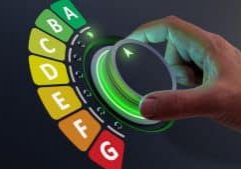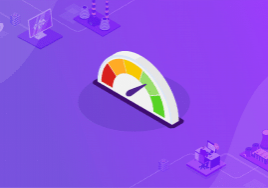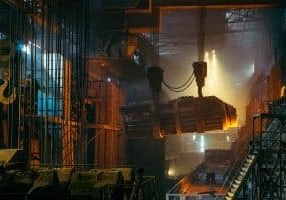Published 06/08/2025
The Energy Efficiency and Conservation Act (EECA) is a legal framework introduced to improve energy management and efficiency in Malaysia. It is important to understand the legislation because those who fit the specified criteria and do not comply can face hefty penalties.
While it is key to achieve Malaysia's carbon reduction targets and improving long-term energy security, it is also an opportunity for the concerned companies to improve their own practices and become sustainability leaders.
In this article, we break down the EECA, outline who it applies to, and decode what is required of them.
TABLE OF
CONTENTS
01
02
03
01
What is the Energy Efficiency & Conservation Act (EECA)?
The Energy Efficiency and Conservation Act (EECA) is newly enacted legislation in Malaysia designed to regulate and promote the efficient consumption and conservation of energy. It establishes guidelines, standards, and regulations aimed at reducing energy waste, enhancing energy efficiency across various sectors, and supporting sustainable energy practices.
The EECA plays a vital role in Malaysia’s efforts to lower carbon emissions and achieve national and global environmental objectives. Under this Act, businesses and industries are required to comply with new energy efficiency standards, with support and guidance provided by the Energy Commission.
The act has been in force since 1st January 2025.
⚠️ Those who do not comply with the Energy Efficiency and Conservation Act (EECA) act risk being fined. ⚠️
02
Who Does the Energy Efficiency & Conservation Act (EECA) Apply to?
Energy Consumers
“A person who, for the purpose of carrying out his activity, business or trade, is supplied with energy or energy resources and consumes the energy or energy resources supplied.”
Energy consumers are concerned if energy consumption is equal to or exceeds 21,600 gigajoules.
Person in charge of a building
“The owner…or any other person having the charge, management or control” of “any building or premises where energy is consumed including building or premises built or used for residential, institutional, commercial or industrial purposes.”
Manufacturers and importers of energy-using products
Distributors of “any equipment, device, appliance or article which uses energy or energy resources.”
03
What are the Duties of those Concerned by the Energy Efficiency & Conservation Act (EECA)?
Energy Consumers
Appoint a registered energy manager.
Implement an energy management system (EMS).
Prepare an energy efficiency and conservation report.
Carry out an audit by a registered energy auditor upon request.
Prepare a report based on the energy audit.
Responsibilities of the Energy Manager
Collect and analyze energy data.
Ensure and monitor the implementation of an energy management system by the energy consumer.
Prepare the energy efficiency and conservation report and ensure that all information provided is accurate.
Provide advice on energy saving measures which may be implemented and monitor their implementation.
The definition of “energy management system” in the EECA
"A set of interrelated or interacting elements to establish an energy policy and energy objectives, and the processes and procedures to achieve the energy objectives. "
Person in Charge of a Building
Apply to the Commission for an energy intensity label to be issued in respect of the building.
Conspicuously display the energy intensity label of the building in the building itself.
Ensure the energy intensity performance of the building complies with its prescribed energy efficiency rating.
Arrange an energy audit with a registered energy auditor to improve the energy intensity performance of the building in case of non-compliance with the energy efficiency rating.
Prepare a report based on the energy audit with an energy efficiency improvement plan.
Manufacturers and Importers of Energy-Using Products
Manufacturers or importers can only distribute energy-using products if they are registered with the Commission and have an issued certificate of energy efficiency.
Energy-using products can only be sold, offered to sell, displayed, advertised, or leased if they have an energy efficiency rating label.
Relevant records and documents must be kept and retained in safe custody for 7 years from the date of the certificate of registration issued. This includes: “a copy of an energy performance testing report or assessment letter issued by a conformity assessment body or laboratory recognized by the Commission in relation to the energy-using product in respect of which the certificate of energy efficiency was issued.”

Carbon Footprint of Products: Improve the Accuracy of Measurements
It is imperative for those concerned by the Malaysian EECA to comply, not only to avoid fines, but also to position themselves as leaders in sustainable energy practices. Compliance with the EECA is not just a legal obligation, but an opportunity to drive smarter, cleaner, and more resilient energy systems for the future.
Need help complying with the Energy Efficiency and Conservation Act (EECA)?










